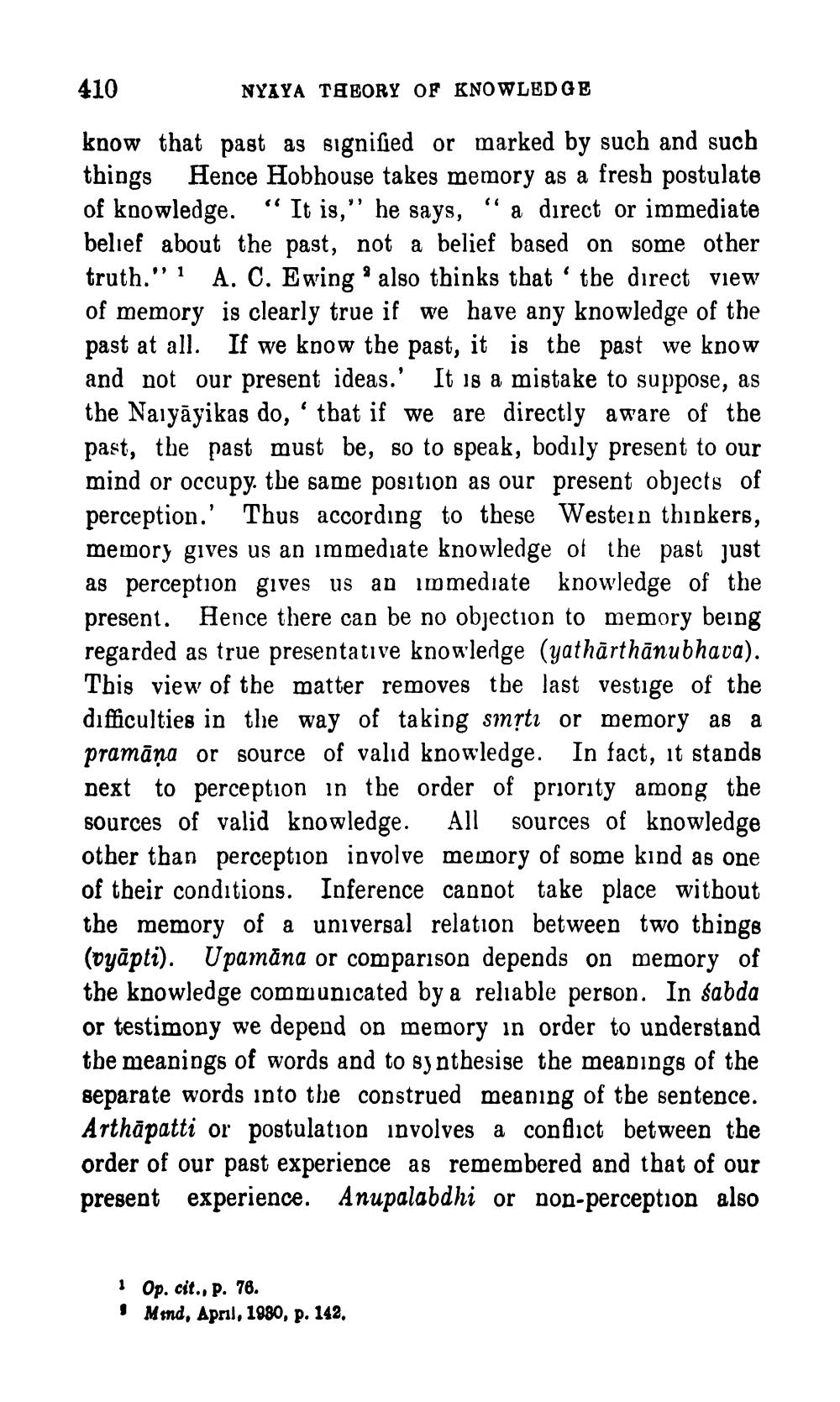________________
410
NYAYA THEORY OF KNOWLEDGE
know that past as signified or marked by such and such things Hence Hobhouse takes memory as a fresh postulate of knowledge. “ It is," he says, “a direct or immediate belief about the past, not a belief based on some other truth."i A. C. Ewing also thinks that 'the direct view of memory is clearly true if we have any knowledge of the past at all. If we know the past, it is the past we know and not our present ideas.' It is a mistake to suppose, as the Naiyāyikas do,' that if we are directly aware of the past, the past must be, so to speak, bodily present to our mind or occupy the same position as our present objects of perception. Thus according to these Western thinkers, memory gives us an immediate knowledge of the past just as perception gives us an immediate knowledge of the present. Hence there can be no objection to memory being regarded as true presentative knowledge (yathārthānubhava). This view of the matter removes tbe last vestige of the difficulties in the way of taking smộtı or memory as a pramāņa or source of valid knowledge. In fact, it stands next to perception in the order of priority among the sources of valid knowledge. All sources of knowledge other than perception involve memory of some kind as one of their conditions. Inference cannot take place without the memory of a universal relation between two things (dyāpti). Upamāna or comparison depends on memory of the knowledge communicated by a reliable person. In sabda or testimony we depend on memory in order to understand the meanings of words and to synthesise the meanings of the separate words into the construed meaning of the sentence. Arthāpatti or postulation involves a conflict between the order of our past experience as remembered and that of our present experience. Anupalabdhi or non-perception also
1 Op. cit., p. 76. I Mond, April, 1980, p. 142.




